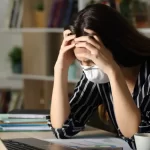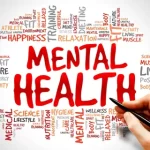Depression is an edgy topic for both patients and medical practitioners. Although it has been recognised for decades, it’s still a hazy area in some sectors. The average person mistakenly defines depression as ‘feeling blue’ or ‘being down.’ They think it’s a mood you can snap out of rather than a debilitating disease that can lead to self-harm and even death.
This stigma and negative attitude make it hard for people to admit they are experiencing depression. Unfortunately, there are medics and professionals who share this perspective, which only raises the barriers to treatment. Depression is much more than low spirits. It’s diagnosed if a patient experiences the following symptoms for two weeks or more:
- Sudden changes in appetite, e.g. eating much more or not eating at all
- Unexplainable changes in sleeping patterns, e.g. insomnia or hypersomnia
- Extreme shifts in eating habits which lead to drastic weight gain or loss
- Aches, pains, and illness that seems to have no cause
- Loss of interest in activities you previously enjoyed
- Hopelessness and intense guilt
- Having a hard time concentrating or focusing
- Persistent anxiety, irritability, and sadness
- Being tired all the time for no particular reason
- Suicidal thoughts and plans
- Dysfunction in your sex life
Even if a patient recognizes that they have depression, it can still be tricky to seek help. Many doctors immediately prescribe medication, and this doesn’t always work. Some drugs work well in some patients but do not affect others.
Also, there’s no consensus on what causes depression. It may be a mix of hormonal imbalance, negative thought patterns, genetic predisposition, and response to trauma. Depending on which factor is more causative, different drug regimens may be needed. For some patients, talk therapy is enough to make them better.
Once a patient has agreed to take medicine, an additional issue arises. Many depression medications have sexual dysfunction as a side effect. They can cause erectile difficulties in men and vaginal dryness in women. Aside from contributing to physical sex barriers, the depression itself can lead to a loss of interest in sex.
Sometimes, this low sex drive is a general symptom. In such cases, patients lose interest in everything. They no longer enjoy food, work, exercise, or time with loved ones. This loss of interest naturally extends to sex. Other times, the loss of libido is more specific. It may be linked to lowered self-esteem, destroying the patient’s sense of self.
When a patient is depressed, they may feel worthless and unattractive. They think they are a burden to those around them, so they don’t want anyone’s company. This emotional distancing is especially acute with their sexual partners. In the depressed patient’s mind, their partner can’t possibly find them attractive, so they don’t want to ‘impose’ sex on that partner.
Studies suggest women experience depression more frequently than men, but men have a higher suicide rate. This may mean women admit depression more frequently than men, who often suffer in silence. In the same way, men have a hard time admitting to sexual problems, so it’s bound to be worse if their medication causes, even more, problems for their masculinity.
In these instances, a man’s negative feelings about his medication-induced sexual dysfunction may deepen his depression, which then aggravates his bedroom problems. It becomes a difficult loop to get out of. In women, the case is a little different. Depression causes their dysfunction when it changes how they feel about themselves.
In both these cases, the first and best step is talk therapy. It can help both men and women get to the root of their depression before they resort to medication, which might intensify their feelings of sexual unattractiveness. Restoring a patient’s self-worth will go a long way in improving their sex drive. This matters because the brain is a bigger sex organ than genitals.
However, there are many cases where medication is essential in resolving depression. For patients who are suicidal, anti-depressants can literally save their lives, and any sexual side effects are a necessary evil. If a patient is worried their medicine will influence their sex drive, they could wait until after sex to take their required dose.
Regular exercise lifts a patient’s spirits and makes them fitter, which improves their blood flow and builds muscle. All these factors lead to better sex. A healthy diet has similar effects on mood and physical attractiveness. It makes your skin glow and your body supple.
The most important step is to ask your doctor lots of questions. If your depression medication causes sexual dysfunction, you can either ask for an alternative or get additional medicine to counteract the effects on your libido.







